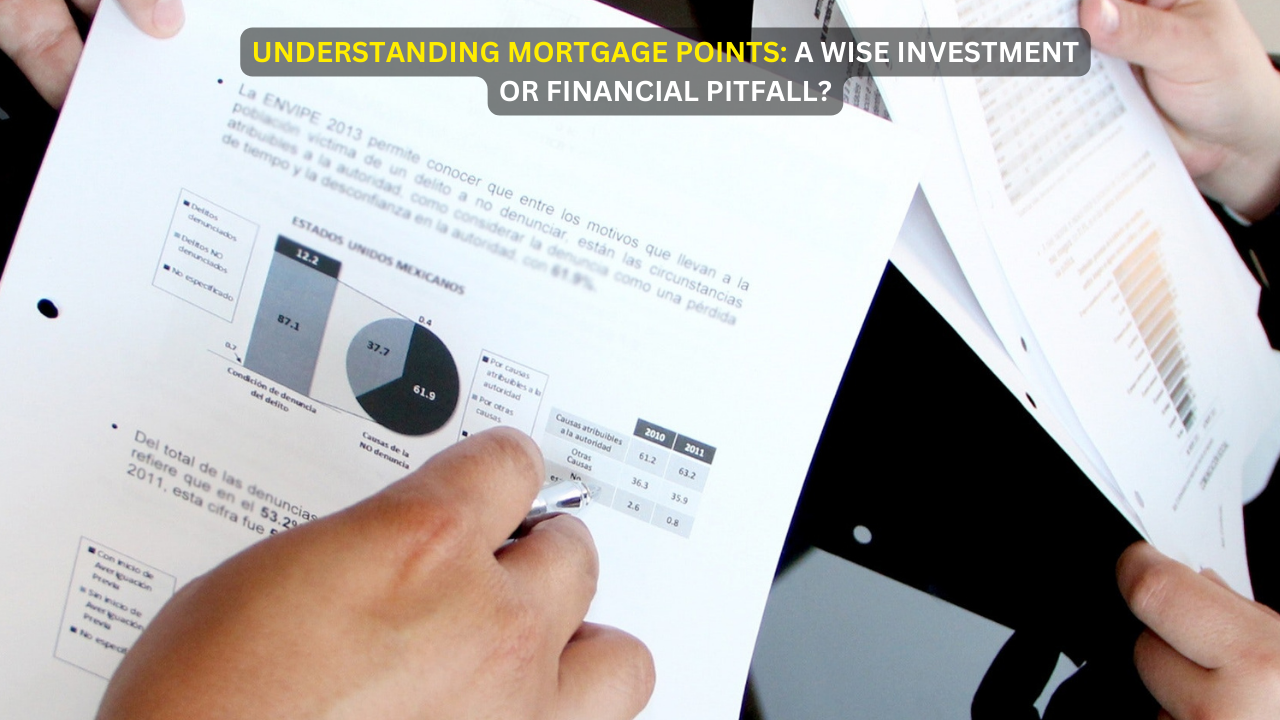When it comes to obtaining a mortgage, borrowers are often presented with a range of options that impact their interest rates and overall costs. Among these options, mortgage points stand out as a potential strategy to reduce interest rates and save money over the life of a loan. However, understanding whether mortgage points are a wise investment or a financial pitfall requires careful consideration of individual financial goals, time horizons, and market conditions. This article delves into the concept of mortgage points, explores their benefits and drawbacks, and provides insights to help borrowers make informed decisions about their mortgage strategy.
What Are Mortgage Points?
Mortgage points, also known as discount points, are upfront fees that borrowers can choose to pay to lower their mortgage interest rates. Each point is equal to 1% of the loan amount. By paying points at closing, borrowers effectively “buy down” their interest rates, leading to reduced monthly mortgage payments over the life of the loan.
There are two main types of points:
- Discount Points:
Discount points directly reduce the interest rate of the loan. For example, paying one discount point might lower the interest rate from 4.5% to 4.25%, resulting in lower monthly payments.
- Origination Points:
Origination points are fees charged by the lender to cover the cost of processing the loan. These points are less common and don’t have a direct impact on the interest rate.
Benefits of Using Mortgage Points:
- Lower Monthly Payments:
The primary benefit of using mortgage points is the reduction in monthly mortgage payments. This can provide financial relief over the long term and free up funds for other expenses.
- Long-Term Savings:
While paying points incurs an upfront cost, the lower interest rate can lead to substantial savings over the life of the loan. Borrowers who plan to stay in their homes for many years can benefit from these long-term savings.
- Potential Tax Deductions:
In some cases, the cost of mortgage points can be tax-deductible. Consult a tax professional to determine whether you qualify for this deduction.
Drawbacks of Using Mortgage Points:
- Upfront Costs:
Paying mortgage points requires an upfront cash payment at closing. This can increase the initial costs associated with buying a home.
- Break-Even Period:
There is a “break-even” point that determines how long it takes for the savings from lower monthly payments to outweigh the initial cost of the points. If you don’t stay in the home for the entire break-even period, you may not fully recoup your investment.
- Market Volatility:
Mortgage rates can fluctuate based on economic conditions. If rates drop significantly after you’ve paid points, you might not fully benefit from the rate reduction.
- Opportunity Cost:
The money used to pay for mortgage points could potentially be invested elsewhere for higher returns. Choosing points over other investment options requires careful consideration of opportunity costs.
When to Consider Mortgage Points:
The decision to use mortgage points depends on several factors:
- Long-Term Plans:
If you plan to stay in your home for a long time, paying points can result in significant savings. If you’re likely to move within a few years, the savings may not justify the upfront cost.
- Financial Stability:
Before paying points, ensure you have sufficient funds for the upfront cost without compromising your emergency savings or other financial goals.
- Interest Rate Differential:
Compare the interest rate reduction achieved by paying points to the potential savings over the life of the loan. If the reduction is minimal, points may not be a worthwhile investment.
- Market Conditions:
Consider prevailing mortgage rates. If rates are historically low, paying points might not provide as much benefit.
- Monthly Budget:
Determine how much you’re comfortable paying monthly. If paying points allows you to afford a more comfortable monthly payment, it could be a viable option.
Alternatives to Mortgage Points:
If the upfront cost of mortgage points is a concern, there are alternatives to consider:
- No-Point Loans:
Some lenders offer mortgage loans without requiring borrowers to pay points. While the interest rate might be slightly higher, this option can be more appealing if you want to avoid upfront costs.
- Using the Funds Elsewhere:
Instead of paying points, you could use the funds for other purposes, such as making a larger down payment, covering closing costs, or investing in home improvements.
Conclusion:
Mortgage points can be a valuable tool for borrowers seeking to lower their interest rates and save money over the life of their loans. However, the decision to use mortgage points is not one-size-fits-all. It requires careful consideration of individual financial circumstances, long-term plans, and market conditions. While mortgage points can lead to reduced monthly payments and long-term savings, the upfront cost and potential drawbacks must be weighed against the benefits.
Before deciding to use mortgage points, borrowers should research current interest rates, calculate break-even points, and assess their overall financial goals. Consulting with mortgage professionals, financial advisors, and tax experts can provide valuable insights to help borrowers make informed decisions. Ultimately, whether mortgage points are a wise investment or a financial pitfall depends on your individual situation, risk tolerance, and long-term homeownership plans.

